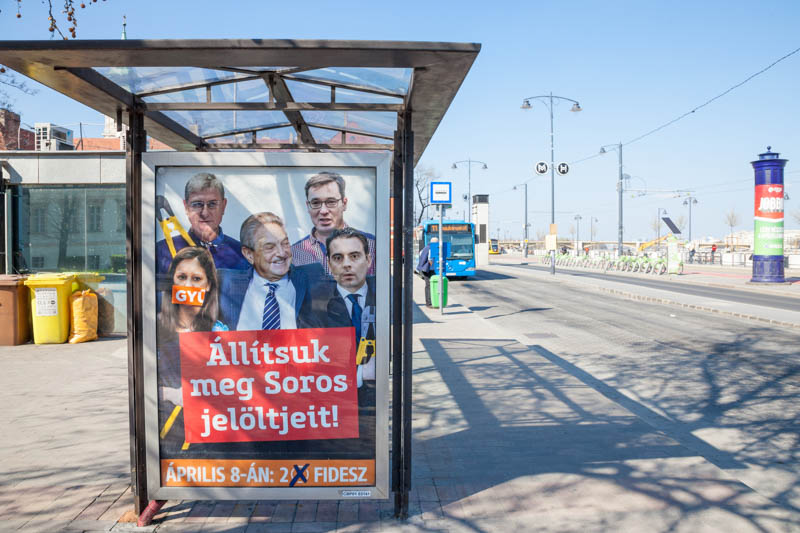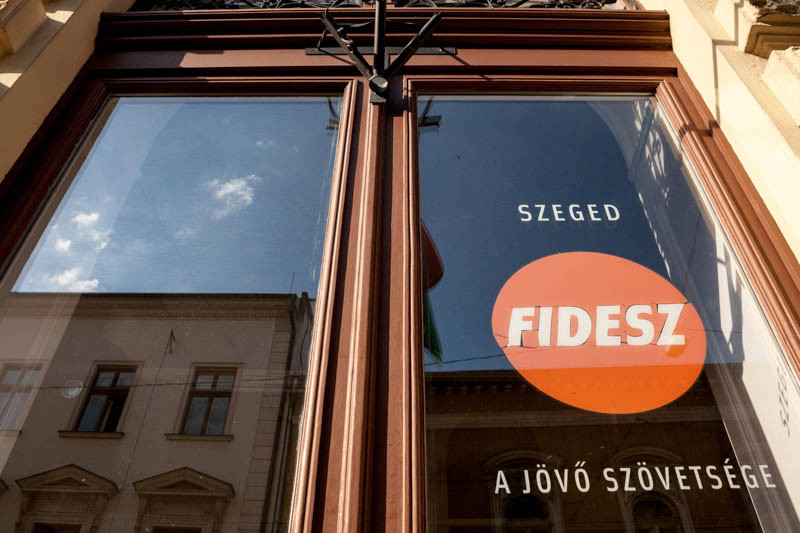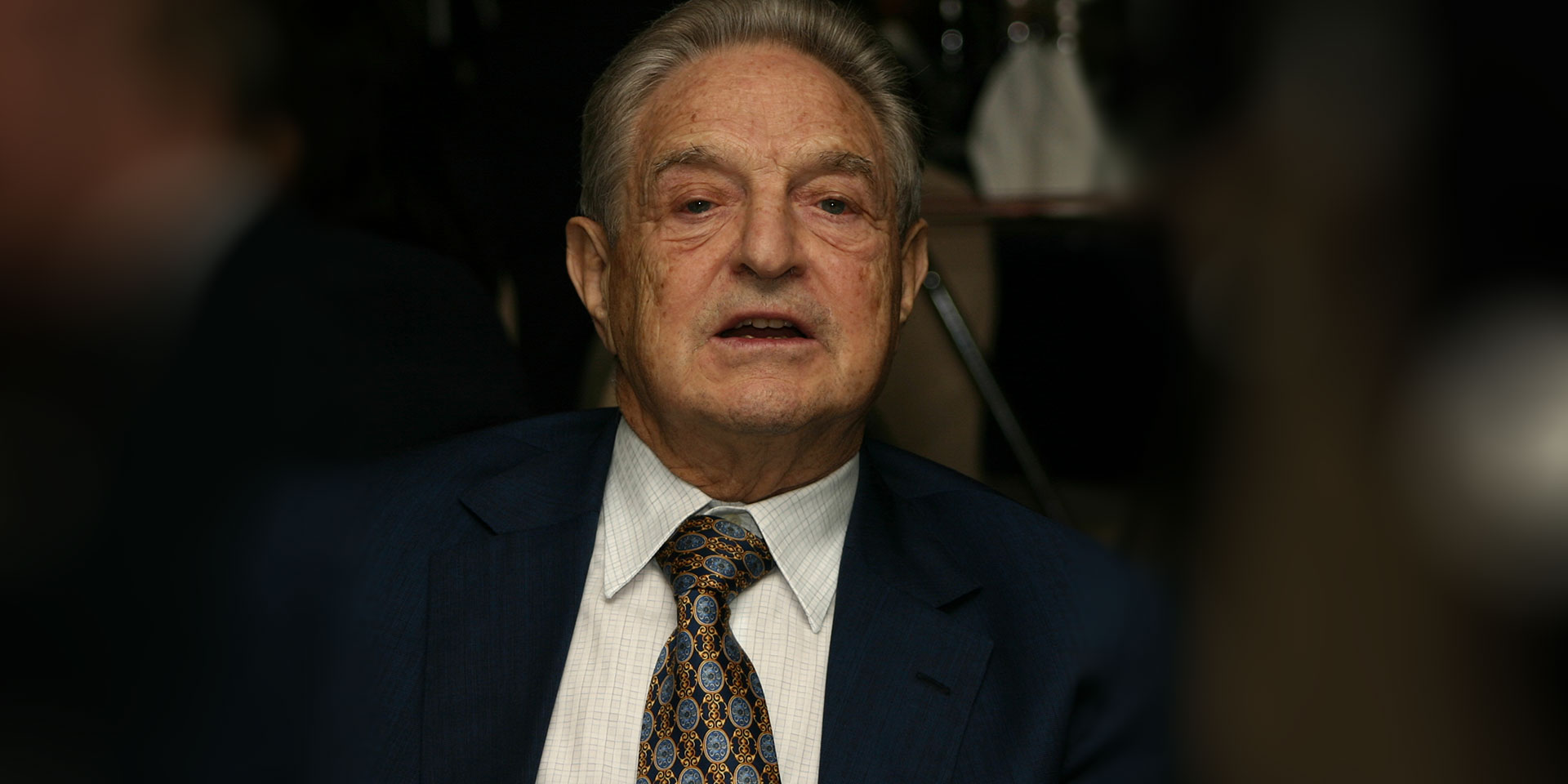When former US President Donald Trump suggested at a press conference in Helsinki that the FBI could be wrong to accuse Russia of meddling in the US presidential elections, citing President Vladimir Putin’s testimony as an argument, the media became fixated on the lamentable insult Trump threw at the secret services.
Putin also made a remark but it did not draw as much attention because it seemed to answer a different question than the one asked by journalists. “This company [accused of meddling] does not constitute the Russian state. It does not represent the Russian state. (…) You have a lot of individuals in the United States, take George Soros, for instance, with multi billion capitals, but does it make him—his position, his posture—the posture of the United States? No, it does not.”
This statement by Vladimir Putin brings zero value to the dispute over Russian interference in the US (because in essence, he says that a secret agent cannot be a secret agent unless he is qualified as such, publicly, by the country’s president). But it contains infinite value for the international public concerned about another investigation: that of the interference of billionaire George Soros in the politics of many states. Putin gave the only answer he could have given in the case of espionage—”it wasn’t us”—but at the same time took the opportunity to add another touch to the “global villain” portrait of tycoon George Soros.
George Soros is accused of instigating anti-corruption protests in Romania, protests against armed violence in the United States, and of interfering in the domestic politics of Hungary, Macedonia, Poland, Serbia, the Czech Republic and Slovakia. He is also said to be the man behind the wave of immigrants from Europe, Brexit, and that he even planned global destabilisation, in order to establish a new world order.
It would actually be easier to identify the events that are in no way associated with George Soros than to list the dark schemes he is said to be behind. Still, how did his name come to be so common in so many conspiracies, from so many countries, and how did so many heads of state come to accuse him so blatantly? If it is true that there is no smoke without fire, who or what is the fire behind this global smokescreen?
The happiest year of Soros’ life
Any biography of George Soros begins by saying that the 91-year-old tycoon was born in Budapest to a wealthy non-practising Jewish family named Schwartz. In 1936, his father, Tivadar, a lawyer who was a prisoner of war in World War I, had the foresight to change his family name to the less suspicious “Soros” (which means “next in line” or “successor” in Hungarian, and “the one who will rise”, in Esperanto).
In 1944, when the Nazis occupied Hungary, his father came up with the idea of buying fake documents to prove that he was a Christian and sending George, then 14, into the care of an employee of the Hungarian Ministry of Agriculture, who was protected by membership in the collaborationist government.
George Soros would later confess that that year was “the happiest year of his life” because it was the year he witnessed the heroism of his father, who not only saved his family but also saved other Hungarian Jews from death.
In the same year, however, while under the care of the Agriculture official, teenager Soros accompanied him in an indictment made in the house of a rich Jew. The officer had taken the boy with him only to avoid leaving him home alone, and Soros did not even take part in the inventory. Still, the event was the seed of truth that sparked the rumours that Soros was a Nazi, rumours that have been perpetuated over time and echoed even in 2018, when the welll-known actress Roseanne Barr made this accusation on social media.
Her violent outburst on Twitter not only cost her a chance at a new round of celebrity with the resumption of the series that had made her famous but also made her responsible for the firing of the entire production staff when the broadcaster cancelled the show because of her political involvement.
Years of exile
Shortly after the end of the war, Soros emigrated to Britain and enrolled in the prestigious London School of Economics. To support himself financially during his studies, he worked as a clerk and waiter and even received a £40 donation from a Christian foundation.
In London, he had philosopher Karl Popper as his teacher, whom he would later say marked his way of thinking. Inspired by Popper, Soros developed his vision of “open society” which, in Popper’s view, was the opposite of totalitarian, fascist, communist, or “tribal” society.
The open society, as described by Popper, which Soros came to admire, is the society that gives and protects the individual’s right to be free and the responsibility to think for himself. The ideals of this society, based on individualism, are democracy, equality and belief in reason.
Popper’s vision has been blamed for being simplistic and for some inevitable fundamental contradictions, such as the fact that by transforming the opening of a society into a norm, the tribalization and closure of that society are achieved. This is exactly what we can observe today as a consequence of the militancy of some groups that are trying to absolutely apply the principle of tolerance as a mark of openness. Popper himself acknowledged the inevitability of the paradox of tolerance.
Moreover, unlike Soros (who in recent years has begun to distance himself from the vision of his philosophical mentor) Popper believed that a society remains open as long as it has the mechanisms that push it to seek the truth: a democratic system based on separation of powers, free speech, and free elections. Soros, on the other hand, believes that the pursuit of truth is imperative for democracy because the mechanisms described by Popper don’t necessarily lead to a better understanding of political reality.
Politicians are strictly interested in winning elections, and the best way to do this is to manipulate public opinion through various advanced cognitive science techniques. As such, they will “respect, rather than manipulate, reality only if the public cares about the truth and punishes politicians when it catches them in deliberate deception.” Therefore, while Popper implicitly conveyed that critical thinking is what leads to a better understanding of reality, Soros came to believe that in today’s political climate, in addition to all the mechanisms praised by Popper, “a strong commitment to the pursuit of truth is also required.”
George Soros’s enrichment
Soros also learned the “principle of reflexivity” from Popper, to which he credits his exceptional financial success. The billionaire claims that, based on this theory, he was able to have a clear perspective on stock bubbles and the value of stocks and was able to capitalise on the discrepancies in their evolution to speculate on key moments.
Soros began his career in the stock market after college, when he emigrated to the United States. After a few jobs at various banks, in 1969 he opened his first investment fund, which he later named the Quantum Fund. His activities at the Quantum Fund made him so much money in the early years of his career that even the most optimistic plans of the one who would become “the greatest speculator Wall Street has known” were far below his achievements.
Also with this hedge fund, Soros went down in history as “the Man Who Broke the Bank of England”, speculating on the depreciation of the pound sterling, which brought him a profit of 1 billion dollars during “Black Wednesday”, the day of the British currency crisis in 1992.
The British treasury lost billions of reserves, which forced the withdrawal of the pound from the European Exchange Rate Mechanism, and Soros’ “bet” against the pound became his best-known investment.
Five years later, when the Asian financial crisis hit the continent hard, starting with the collapse of the Thai currency and then spreading throughout the entire region, Soros was accused of being behind the collapse of the market. However, the British national television broadcaster posted a profile of the billionaire on their website, noting that although Soros benefited from the Asian crisis, “other investors had made even heavier bets against the Thai currency than his firm had.”

Philanthropic work and enemies
In the 1970s, Soros was already one of the richest people in the world. Having accumulated more than he could spend in a lifetime, Soros decided to become an “agent of history”, according to a biography published in the New York Times. “He decided that his goal would be opening closed societies,” and for this purpose he created a philanthropic organisation—the Open Society Fund—and, in 1979, began to sponsor. He started the organisation by offering scholarships to black South African students.
He then moved to Eastern Europe, where he began to fund various dissident groups: the Solidarity strikers in Poland (a pivotal influence on the collapse of communism in that country); the Charter 77 initiative in Czechoslovakia, founded, among others, by Václav Havel, who would become the last president of Czechoslovakia and the first president of the Czech Republic. The NYT biographer reports that Soros sent hundreds of Xerox copiers to Hungary to facilitate the dissemination of underground publications.
In the 1980s, George Soros began offering scholarships to study in the West to Eastern European students who had the potential to become leaders of future liberal democracies. Among these students was the current President of Hungary, Viktor Orban, who studied at Oxford thanks to the Soros scholarship.
Soros trusted Viktor Orban so much that he also sponsored Fidesz, a student organisation that Orban helped establish, which later evolved into his political party.
In the 1990s, Orban began to drift from liberal and Western ideals to an increasingly nationalist political vision. Thus, although during his term as Prime Minister he had clear pro-Western policies (Hungary joined NATO and started the process of joining the European Union), after his defeat in the 2002 elections, Orban slid into radicalization, moving away from the West and getting closer to Vladimir Putin. After winning the 2010 elections, he surrounded himself with Fidesz supporters and, with their help, secured the support of several media institutions that they had bought. Orban also won the 2014 elections, but a year later the immigrant crisis broke out.
Several humanitarian groups financially supported by the Open Society Foundation started helping immigrants on the border with Hungary, and this led to the scale of Orban’s ideological war with Soros becoming public.
In 2018, during a rally in Budapest, Orban called the billionaire “Uncle George”, before launching an appeal to the tens of thousands of supporters present to fight the “enemy that is different from us. Not open, but hiding; not straightforward, but crafty; not honest, but base; not national, but international; does not believe in working, but speculates with money; does not have its own homeland but feels it owns the whole world.”
Orban’s words then materialised in a state-funded national campaign, in which huge billboards displayed portraits of Soros along with messages against him. Soon after, Hungary even introduced a law called “Stop George Soros”, which outlawed illegal immigration in the country.
In 2016, the same fate befell Open Society Foundation’s work in Russia. At one time, George Soros was Russia’s largest private donor, funding initiatives such as an anti-torture program. In 2016, however, the Putin government banned the Open Society Foundation group from distributing funds in the country, calling the organisation “undesirable” and stating that it undermines “Russia’s security, defence, or constitutional order.”
No wonder the Russian president referred to the tycoon during a joint news conference with Donald Trump. What is interesting, however, is that in Helsinki, the Russian leader used almost exactly the same type of argument that he used in an interview with Austria’s ORF television, in June 2018. “He intervenes in things all over the world. But the State Department will tell you that it has nothing to do with that, that this is the personal business of Mr. Soros.”
This statement gives an obviously ironic nuance to its reiteration, in a much-attenuated form, in the press conference held together with the former American president. Trump did not intervene after Putin’s statement because he does not like Soros either. In fact, the former American leader not only displays an antipathy to Soros that he inherited from the party, but also a personal contempt (which the billionaire reciprocates).
During George W. Bush’s presidency, Soros became a key donor to the Democrats and their progressive causes, “angered by what he saw as an effort by the Bush administration to use the war on terror to stoke fear and stifle dissent”, the NYT wrote. Soros was one of the first donors in Barack Obama’s 2008 presidential campaign, and he said that after being elected, “he closed the door on” him. That didn’t stop him from contributing more than $25 million to Hillary Clinton and other Democratic candidates in the 2016 election. Maybe it’s because, as he once said, he was “very afraid” that Trump would “blow up the world rather than suffer a setback to his narcissism”.
He would later say that he was pleased to see that the president’s ego had led him to reach out to North Korea. “I think the danger of nuclear war has been greatly reduced, and that’s a big relief.”
It’s not that Soros suddenly changed his mind about his political orientation. On the contrary, before the legislative elections in November 2018, he donated another $15 million to Democratic candidates.

George Soros’ dream
Today, the Open Society Foundation spends nearly $940 million annually on programs in more than 100 countries, with about 37 regional offices designed to encourage “vibrant and inclusive societies, grounded in respect for human rights and the rule of law, whose governments are accountable and open to the participation of all people”. But while praising his support for projects that really contribute to society’s progress, non-partisan critics of George Soros’ work see a danger in the billionaire’s investments in the Democratic Party, no matter how ill-equipped for the crises of the moment it may be.
Then, “from a democratic perspective, though, this single wealthy person’s ability to shape public affairs is catastrophic” for that open society which Soros advocates for, The Guardian notes. In fact, his presence as a billionaire (along with a few other names that form that 1% whose hands hold the bulk of the world’s financial power), is in itself an obstacle that threatens the ideals of equal opportunities, resources, and access, which characterise the cosmopolitan and open society that Soros dreams of. In a world where people have to fight hard to achieve a truly competitive meritocracy, equality, tolerance and acceptance are doomed to remain chimeras.
As faithful as he is to his ideals, Soros, unfortunately, cannot overcome the paradoxes that have capped the ideals of his mentor, Karl Popper.
After spending an astonishing proportion of his wealth to rebuild societies according to a model he considers most efficient and closest to the real needs of the world, he found that societies were deeply vulnerable to the egocentric manipulations of political leaders. But his struggle to open up societies remains his priority as a leader—not as a politician, but as a tycoon. It is a sign that Soros cannot escape the paradox that societies need democracy. Still, democracy is not a priority for many societies; it must somehow be instilled. Isn’t the struggle to instil democracy a form of totalitarianism, even if well-intentioned?



















